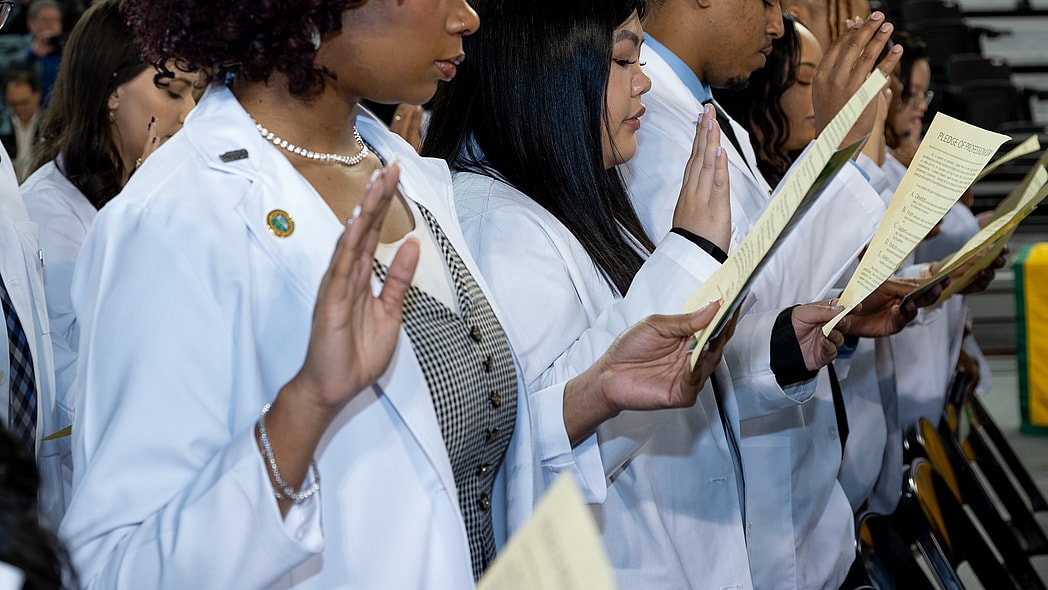Along with the “second wave” of feminism, the 1970s marked the start of the breast cancer awareness movement, with several prominent public figures bringing attention to the need for education, scientific research, and support for this disease. Since that time, major strides have been made in the prevention, detection, and treatment of breast cancer, and today, significantly fewer women are dying from the disease. However, these advances have not benefited everyone equally; Black women are 40% more likely to die from breast cancer compared to white women. And the disparity among younger women is even more pronounced: Black women under the age of 50 are twice as likely to die from breast cancer than white women of the same age.
As a physician and scientist — and someone of African descent — I am acutely aware of the devastating impact that breast cancer has on our community. In my over two-and-a-half decades of clinical practice, I am also no stranger to seeing the same disease impacting people differently across races, ethnicities and socioeconomic backgrounds.
I am dedicated not only to addressing health disparities but also to better understanding those who experience them. Who are they? Where do they live? When do they receive the life-changing news that they have cancer? And, when they do find out, how do they navigate the healthcare system to receive appropriate and optimal care?
The unfortunate reality is that Black men and women generally have lower rates of cancer screenings overall. Black women are more likely to be diagnosed with breast cancer at an advanced stage, when the disease is more complicated to treat, and are twice as likely to be diagnosed with triple-negative breast cancer, an aggressive form that has fewer treatment options. In addition, Black women have the lowest 5-year relative survival rate for every stage of breast cancer at diagnosis. This points to significant gaps in accessing quality care and treatment following a diagnosis.
At the root of these inequities lies an incredibly complex history of discrimination, biases and mistrust in the healthcare system. This history, combined with the lived experiences of many Black women today, can often limit or even prevent them from accessing cancer screening opportunities and seeking care and support once diagnosed. This disparity also extends to participation in clinical trials that are working to advance new potential breakthrough medicines. It is well-established that racial and ethnic minorities continue to be underrepresented in clinical trials — according to recently published data, it is estimated that only about 4-7% of cancer clinical trial participants are Black. Even this small percentage is thought to be an underestimation, given that only about one-third of cancer clinical trials report race. In addition to medical mistrust, factors that contribute to low participation in clinical trials include study design (e.g., lack of diverse recruitment), medical provider bias, enrollment requirements (e.g., exclusion of people with other illnesses), and barriers to access.
Recommended Stories
In order to achieve true health equity for all and enable Black women to benefit from scientific advances in breast cancer screening, diagnosis and care, these disparities must be addressed. Despite the numerous barriers, I believe that by working together, we can find ways to make progress. No one individual or organization can tackle these challenges alone; it will take collaboration and partnership toward a shared mission.
To that end, Pfizer is partnering with the American Cancer Society to start creating change where it is most urgently needed, in communities that are disproportionately impacted by breast and prostate cancers and are medically underserved. Through the new “Change the Odds” initiative, we will raise awareness of no- and low-cost screenings, enhance access to support and patient navigation services, and provide general information about clinical trials.
As a Black woman, I know the importance of advocating for my own health to get the care I deserve, and I encourage every woman over the age of 40 — or younger if you have risk factors such as a family history — to seek regular breast cancer screening. But as a physician and advocate, I know the healthcare community simply must do better for women of color. Every life lost to breast cancer is a life we cannot afford to lose.

As Chief Medical Officer of Pfizer, Dr. Aida Habtezion leads Pfizer’s Worldwide Medical & Safety organization responsible for ensuring that patients, physicians, and regulatory agencies are provided with information on the safe and appropriate use of Pfizer medications. She also leads Pfizer’s Institute of Translational Equitable Medicine, an initiative to achieve health equity. Prior to joining Pfizer, Dr. Habtezion was a practicing physician and scientist at Stanford University’s School of Medicine, Division of Gastroenterology and Hepatology.










